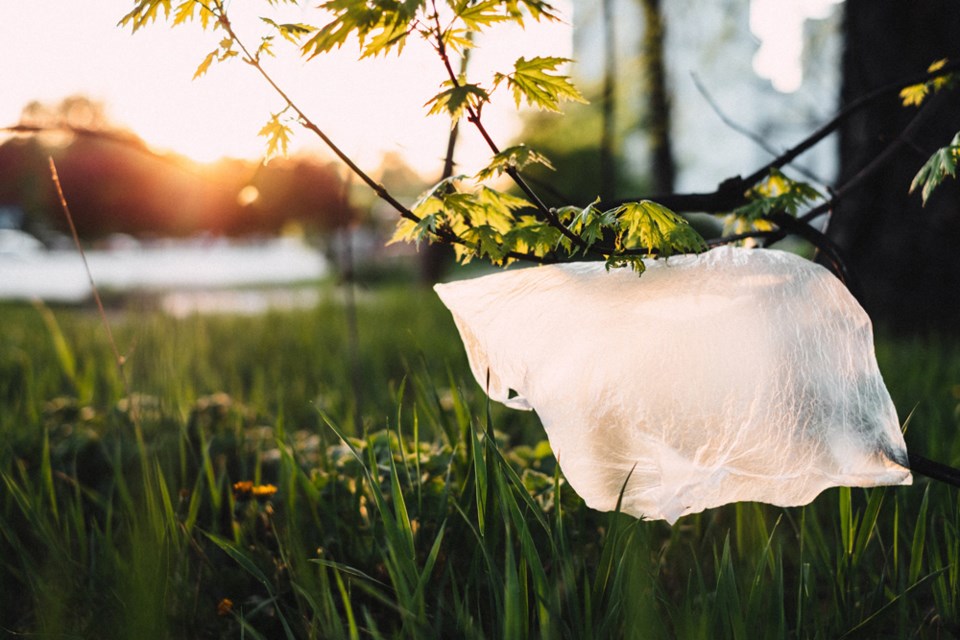Hats off to our municipal council for banning plastic shopping bags by the end of this year, after hearing a presentation from a group of local students. And let’s give those kids and their teachers credit where credit is due.
We should encourage more homegrown grass-roots activism when it comes to reversing the incalculable environmental damage done by plastic containers and packaging.
Eight years ago, Squamish municipal officials were riding the crest of a national wave when they banned plastic bottled water from muni hall. At the time, close to 70 Canadian municipalities, including Vancouver, London, Toronto and Halifax, embraced the “turn on the tap” message, a campaign designed to get people to drink tap water instead of buying plastic bottled water.
A recent exposé in Scientific American revealed plastic bottles are more likely to be turned into non-recyclable carpets and synthetic clothes than re-manufactured containers. As well, according to that report, single-use plastic bags are “an incredibly reckless abuse of technology” because they can persist in the environment for hundreds of years.
Last October, 250 organizations responsible for 20 percent of the plastic packaging produced around the world signed on to the New Plastics Economy Global Commitment to reduce waste and pollution. That diverse group includes the clothing company H&M, Unilever, PepsiCo, L’Oréal, Nestle, the World Economic Forum, the Consumer Goods Forum, and 40 academic institutions. The goal is to promote a circular economy that focuses on reusing or repurposing plastic. But according to one Greenpeace press release, although that commitment is laudable, companies continue to prioritize recycling over reduction and reuse because actual targets to reduce the total amount of single-use plastics are still not mandated.
Another notable offender on the environmental degradation scene is polystyrene, more commonly known as Styrofoam, the Dow Chemical trademark name for extruded polystyrene. Styrofoam is difficult to break down and leads to a buildup of toxic waste in our oceans and landfills.
A growing list of eco-friendly alternatives is now available, including materials made from corn starch, grain sorghum, powdered bamboo fibre mixed with resin and products sourced from sugar cane processing.
There are some refreshing signs that several prominent movers and shakers are getting the message. After a deluge of petitions from customers and environmental organizations, hamburger giant McDonald’s will phase out foam packaging this year. According to Business Insider, the company also plans to use 100 per cent recycled fibre-based packaging by 2020. And a growing number of cities have joined the crusade to ban polystyrene food and drink containers, egg cartons, ice chest coolers, aquatic toys for swimming pools, mooring buoys and navigation markers.
As a community, in the true sense of the “think globally, act locally” slogan, we should continue to explore ways to address this environmental blight.
Encouraging our municipal government to take appropriate action and supporting populist engagement by our youth and other groups are important steps on the road to that goal.



